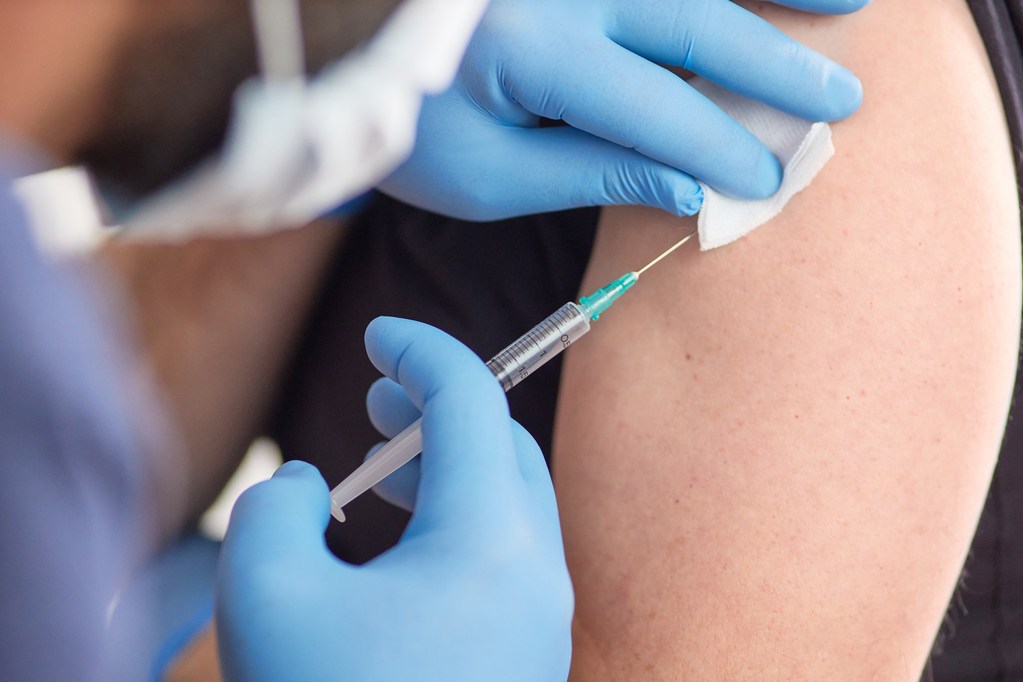While some EU member states are contemplating starting booster vaccination campaigns among elderly in the near future, Sweden has decided that it is too early, besides giving third shots to people with suppressed immune systems due to underlying conditions.
In the latest update of the corona travel map published on Thursday by the European Centre for Disease Prevention and Control (ECDC), Sweden turned fully red. This did not discourage Sweden to sticking to its position that the vaccines against COVID-19 still are effective and provides good protection against serious illness.
“We don’t see any signs today that those persons who were first vaccinated would be more sensitive for COVID-19 infection than other people,” chief state epidemiologist Anders Tegnell told The Brussels Times. “
While in the past he seemed unwilling to consider findings that ran against his views on how the outbreak should be contained, he says now that the country’s Public Health Authority is following the development and studies in other countries.
“As regards reports about breakthrough infections in Israel, we haven’t seen any signs indicating a similar development in Sweden. Currently, 90 % of those who are seriously ill in COVID-19 in Sweden are unvaccinated people. The goal in Sweden is to maximise vaccination coverage and thus to increase the protection against infection and reduce the pressure on the health care system.”
Israel started a booster campaign a month ago, giving a third shot of the Pfizer-BioNTech vaccine to people at the age of 60 and older. The decision followed an increase in daily infections in July due to the Delta variant and preliminary evidence showing that the vaccine’s effectiveness was declining by time among elderly people.
Gradually the campaign included younger age cohorts down to 30 years and has by now reached more than 1,5 million people. The number of daily infections, however, has not yet decreased and reaches up to 10,000 per day but would have been even higher without the third shot according to Israeli experts.
Contrary to Sweden and most other EU countries, where the rollout of the vaccination campaigns were slow in the beginning and only took up speed in April, the vaccination of elderly people in Israel started already in December, which might explain why the immunity protection amoung this age group has decreased since then.
According to Pfizer CEO Albert Bourla, the vaccine’s protection drops by about 6 % every two months following the second dose. In an interview in late July, he reportedly said that he was confident that a “third dose, a booster, will take up the immune response to levels that will be enough to protect against the delta variant.”
Currently, about 6,6 million persons in the Swedish population above the age of 18 have received at least one vaccine dose and 5,3 million persons have received two doses. Of the 650,000 reported cases since the beginning of 2021, only 5274 (0,8 %) were people who had been vaccinated twice (following two weeks after the second dose).
However, the latest Swedish figures last week showed that the percentage of breakthrough infections of already vaccinated people had increased to 11 %. This is expected to happen the more people are vaccinated, according to the Swedish health authority. “No vaccine gives 100 % protection,” says Anders Tegnell, “but the vaccines are effective and protect against serious illness.”
Vaccine effectiveness
Sweden relies on its own evaluations and published in July a study on the protective effect of vaccination against COVID-19. The study covered the period March-first half of June 2021 and compared infection rates among unvaccinated individuals and individuals with either one dose of a vaccine (plus at least 21 days) or two doses of vaccine (plus at least 14 days).
The analysis included all persons 65 years and older registered in Sweden at the beginning of the study period. The results confirmed the protective effect of vaccination is high compared to the unvaccinated group – 42 % after one dose and 77 % after two doses. Vaccine effectiveness was even higher when considering admission to intensive care.
The figures measured relative risk - that is how much less likely a vaccinated person will be infected or seriously ill - but did not measure if the immunity protection is decreasing by time among vaccinated people.
Despite Sweden’s satisfaction with the vaccine’s effectiveness, its vaccine certificates still state that they have a validity time of only three months following two weeks after the second shot. The guidelines for the EU Digital COVID Certificate does not require any information about the validity period.
The Health Authority explained that the current validity period was determined quite some time ago and based on available knowledge at that time. A spokesperson for the Swedish eHealth Agency, which is issuing the certificates, added that it is not possible to recall them and that the expiry date of 90 days was chosen for safety reasons.
EU is relying on its expert agencies for scientific advice. In a response in beginning of August, the European Centre for Disease Prevention and Control (ECDC) confirmed that it had not yet issued recommendations on booster vaccinations for COVID-19 “given the current lack of evidence that boosters are required as a measure for the general population”.
However, it is following emerging scientific evidence closely, including on the duration of protective immunity that vaccines confer overall and for specific vulnerable groups, for the current variants of concern and any others that might emerge in the future. Together with the European Medicines Agency (EMA), it planned to look at the need for issuing guidance on booster vaccination in the near future.
The issue might be decided rather sooner than later. A spokesperson for the ECDC said on Friday that ECDC plans to issue a technical report on the subject of third vaccinations and booster vaccinations already in the beginning of next week.
M. Apelblat
The Brussels Times

